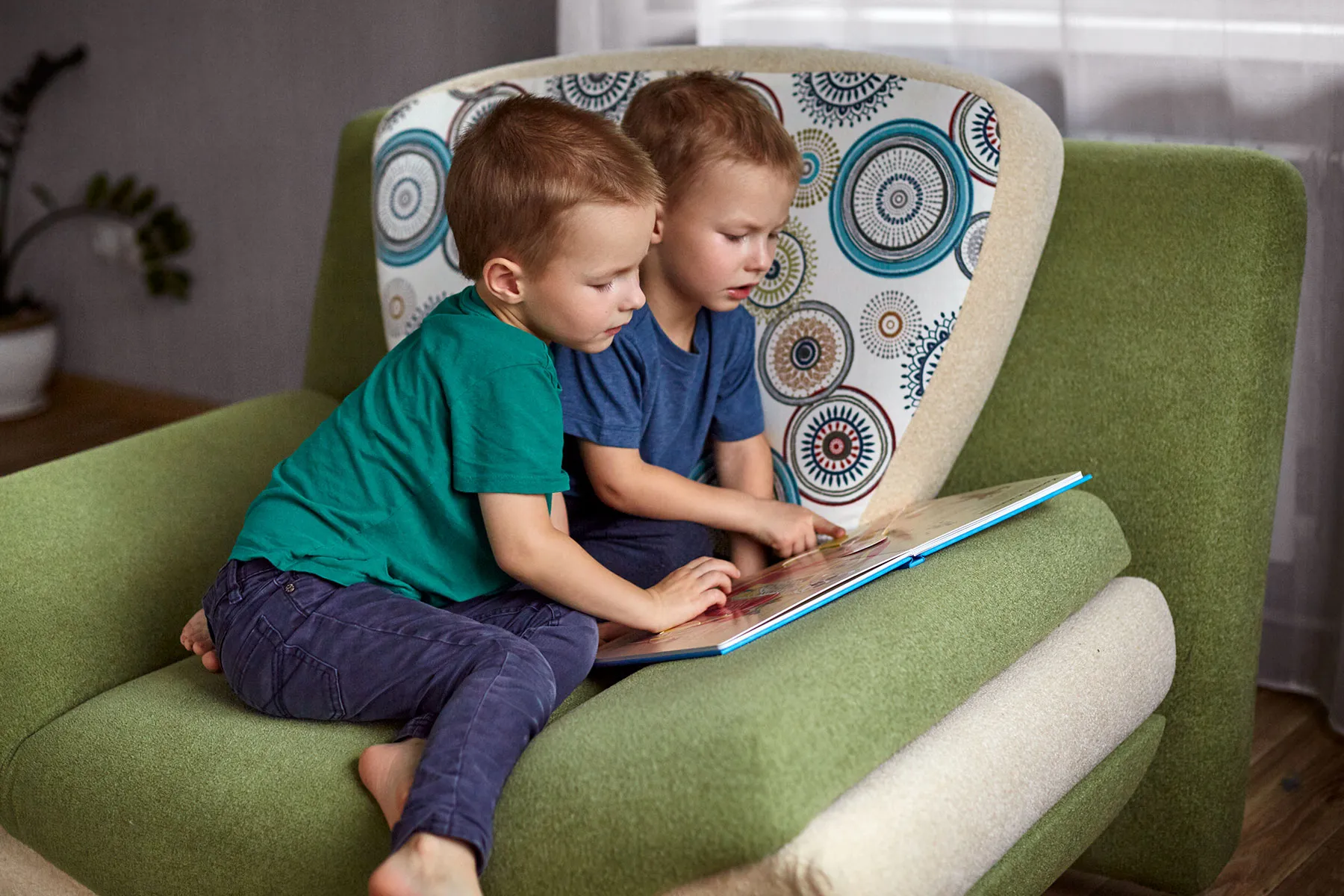After an infant’s early babbling stage, many parents expect their baby’s first word to be a heart-melting “Ma-ma” or “Da-da.” So Shelby Tripp, while pleased her twins Aaliyah and Ariston started speaking, was surprised when, instead, they started calling each other “Duggots.”
“Around age 1, they’d developed their own way of talking,” says Tripp, of Volcano, Hawaii. “Aaliyah first started calling Ari ‘Duggots,’ then Ari picked it up.” They also chattered in rapid-fire syllables like “dadadada,” “tatatatatat,” and “tookatookatooka,” using different tones, inflections, and other emphases.
Twin speak, also known as cryptophasia, can baffle parents as their twins or other multiples seem to chatter in speech no one else understands. But there’s no evidence that they’re really creating a unique language, even if it sounds that way.
“Language, by definition, is a rule-governed behavior,” says Diane Paul, PhD. She’s the senior director of clinical issues in speech-language pathology at the American Speech-Language-Hearing Association (ASHA) in Rockville, MD. “It’s defined as the comprehension and use of a spoken, written, and/or communication symbol system.”
The term “twin language,” she says, is a theory based on the idea that siblings born together develop a language that’s unique to them and distinct from the language spoken in their home. It certainly seemed so to Tripp, especially when she tried to join in. “My husband and I would try to copy them, and the babies would snicker or laugh,” she says.
Paul says children go through a period of speech and language development in which they use word approximations, such as saying “wawa” for water, as simplifications of adult words. They understand the rules linked with the sounds in the language they’re learning, even if they can’t yet articulate sounds to say the exact word.
Twins may forge their own word approximations “because they’re imitating each other’s idiosyncratic, or unique, way of simplifying a word,” Paul says.
Infants and toddlers copy what they see adults and other children do, including trying to imitate speech patterns. Because twins are together nearly all day, some might begin to mimic each other.
“These children aren’t developing a new language. They are doing their best to communicate their wants, needs, and ideas,” says Jaime Van Echo, associate director of clinical issues in speech-language pathology at ASHA. As children enter the early stages of expressive language development, they often produce what experts call protowords.
“These protowords are made-up words, or word-like utterances, using sounds the child can produce but may or may not match the sounds produced in a target word,” she says. “These protowords have specific meaning and are used consistently to convey this meaning.”
Twins often use the same protowords because they’re copying each other. They might keep speaking them even after they master real words. So while it may seem like they’re talking their own language, “they may simply be holding on to protowords and prefer to use these with each other,” Van Echo says.
Twins get more sophisticated in their speech and language as they grow up. Sometimes, they “may choose to hold on to the way they said some of the words when they were younger when speaking to each other,” Paul says, “knowing that there is a clearer way to say the word when speaking to others.”
Tripp’s twins are now in elementary school, and Ariston is grounded in normal speech. Aaliyah, who’s been diagnosed with a type of dyslexia, still likes to pretend she’s talking in a different language, knowing it’s made up, Tripp says. She hopes that real-world languages might be a gift her daughter can pursue when she’s older.
Even though the Tripp twins have outgrown it, they still sometimes return to their twin speak, usually when they’re trying to be funny. Tripp and her husband have tried to harness the babyhood closeness. “We still want to hold on to that ability” to communicate in their own way, she says. “As connected as they were as babies, they’re so very different. We want to hold on to some of that magic they have.”
https://img.wbmdstatic.com/vim/live/webmd/consumer_assets/site_images/article_thumbnails/features/_2023/10_2023/cryptophasia_twin_language_features/1800x1200_cryptophasia_twin_language_features.jpg
2023-10-12 17:48:49





